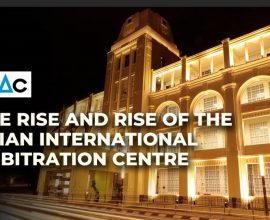Is it time to regulate online legal services offered by non-lawyers?
The Internet is a Great Connector. On the one side are non-lawyers offering ‘legal services’. On the other, unsuspecting consumers. If the consumer is given wrong advice, who will protect him? Is it time for ‘web-legal’ services to be regulated? Should only registered legal practitioners be allowed to give advice, even if it is done through the internet? Can the web be regulated? Is it possible? If so, how?
If you have appendicitis, would you go to a properly qualified surgeon, or to one of these quacks who offers – through an internet portal – to do it for you, for RM200.00?
There is your answer.
You cannot trust the internet for everything.
The Great Connector
On the one side are people needing legal advice.
They don’t wish to spend a lot of money.
They don’t wish to rush about town in the traffic for hours.
They don’t want to leave their office.
On the other are faceless ‘legal entrepreneurs’.
You have no idea who – or how good – they are.
The internet connects such clients with ‘entrepreneurs’ ready to provide ‘legal services’ at lower costs.
All that is needed is a smartphone and an internet line.
‘Custom-made Agreements’, and ‘Wills’
The Internet has procreated a myriad websites. They allow the public to ‘custom make’ legal documents at a fraction of the price a lawyer charges: e.g. wills, and agreements.
All you need to do is to go into a search engine (like Google or Yahoo) and ask where you can find legal documents. You’d be led to websites offering to ‘generate’ documents – for smalls sums of money.
Prices range, per transaction, from USD10.00 to USD250.00.
All you need to do is to answer an algorithm that asks specific – but probing – questions:
List out your assets, their respective values, and whether these are in cash or are landed properties.
If you are interested in a will, to whom would you like to will your properties to?
And so on.
In this way two things happen: the prospective client does all the work of a lawyer.
The ‘client’ fills in his own details.
He inserts all the particulars into the blank spaces.
After the client enters the details, he pays through a credit card, without knowing if the processs is secure.
Then a document is generated purporting to be the ‘the Last Will and Testament of John Smith etc’.
The work is done.
The ‘lawyer’, on the other side – if there really is one – does nothing.
That is the nature of the market.
No need to meet a lawyer, or hunt for a parking space, or leave the baby to an expensive babysitter; or indeed, go out in the hot, or wet, weather.
People always choose the path of least resistance.
Several concerns arise from transactions like these.
Security Concerns
You place metal fences around your house.
Yet you give away property information through your keyboard.
You transfer – through a website – sensitive information to a faceless stranger.
When you pay monies through a credit card, do you know where this information will end up?
You have no idea where the person controlling the website is sitting: whether in Kota Bharu, Lagos, Nigeria, or Timbuktu.
Does it make sense?
Your credit information could be abused.
It has been. You know.
You’ve heard about all these ‘scams’.
Is this one?
You wouldn’t know.
The service provider’s Quality of Knowledge and Skill
A legal professional cannot practise law at the Bar without a valid Practising Certificate.1Section 37, Legal Profession Act 1976
Is the service provider – the person who is advising you through the website – a qualified practising lawyer, one with a valid PC?
Or is he a non-lawyer?
A ‘non-lawyer’ is one who has absolutely no knowledge of the practise of the law.
They would never have set their eyes upon important laws that one has to look out for: e.g. the Wills Act 1959, or the Act regulating Malaysia’s premier public trustee’, the Public Trust Corporation Act 1995; the Small Estates (Distribution) Act 1995; or the Probate and Administration Act 1959.
And if they did, they would not know how to interpret it. That requires years of training.
And then there are those who call themselves ‘non-practising lawyers’. This is an ambiguous phrase. But you can be sure of two things. They would not be subject to disciplinary proceedings. Second, they would not have insurance policies covering them. If something went wrong, there will no money to pay out. You may be looking at a man of straw.
Is an internet service provider giving wrong advice, liable in law?
The law says that if you advise someone who relies on your knowledge or skill, you are liable to pay damages if the advice turns out to be wrong. Hedley Byrne v Heller. 2 [1964] AC 465, where the House of Lords approved the sterling dissent of Lord Denning MR in approve the dissenting judgment of Denning LJ in Candler v Crane, Christmas & Co [1951] 2 KB 164. Hedley Byrne was later expanded in the three-fold test in Caparo Industries plc v Dickman [1990] 2 AC 605.
Even where such advice given in a non-formal context, it may result in liability.
Consumers’ exposure to danger
The real concern is about consumer protection.
If non-lawyers provide ‘legal services’ directly to the public, there is a worry that it will lead to ‘consumers’ exposure’.
There is a risk of consumers being advised by people with no training or legal skill.
These non-lawyers may assuage their client’s fears by saying there is ‘nothing to worry about’; or that ‘this legal document is fully legit’.
Is that good enough for you to decide which child will get your property after you die?
What happens when things go wrong?
It is entirely possible that non-legal professionals may assure a client that they are covered by ‘indemnity insurance’ which would protect the client.3 The Future of the Legal Profession, Prepared by the Law Society of Western Australia, 12 December 2017].
There are number of problems with this kind of assurances:
The service provider may discover that although they are ‘insured’, their policy may not cover professional errors – if indeed such an indemnity policy was taken out in the first place.
Do you think that if they did not take out an insurance policy to cover their clients, they’d tell their clients about it? You?
When a claim is made, the insurer may refuse to pay on the policy.
The insurer will argue that that contract of insurance is ‘illegal’ in the first place and outlawed by the national law regulating the discipline of the legal profession.
The insurer will say that it cannot cover a situation where a non-lawyer gives legal advice.
Some examples
These are all cases that decided that non-legal practitioners cannot give legal services.
The Australian case of AG v. Quill Wills Ltd set the tone about 28 years ago.4 Attorney General at the Relation of the Law Society of Western Australia vs Quill Wills Ltd and others [1990] W ASC 604
This was well before we had the full-fledged Internet, or the explosion of the vast number of ‘apps’ that have flooded the market.
The court said that non-legal professionals who assisted in the ‘production of a will’ were rendering legal services.
The court said that the service provider was not merely giving ‘abstract information’.
It had been engaged in ‘rendering legal service’.
It was barred from doing so.
Several cases in Australia came to a similar conclusion.
One example is Dean v Legal Practice Board.5[2015] WA SC 260 (7 August 2015)
Dean was not a legal practitioner.
The Court said he had ‘engaged in legal practice’ by preparing ‘legal documentation’ for a client.
What qualifications must a person have before he can give legal advice?
In the case of Legal Practice Board v Adams, Adams was not a legal practitioner, but he had given legal services.6 [2001] WASC 78 [30 March 2001].
There the court ruled that one ‘practises law’ when one ‘gives legal advice and ‘counsel’ to others – even if these matters do not ever end up in a court.
It was only when a person had ‘legal skill and knowledge of the law greater than that possessed by the average citizen,’ could he give legal advice.7The American case of State Ex Rels Florida Bar v. Sperry 1962 140 SO (d) 597 [591]
The act of giving such advice said the court, ‘constitute[d] the practice of the law.’
Thus where a person generates legal documents, he is ‘giving legal services’. Even if a software is used for that purpose, it goes ‘beyond mechanical or clerical tasks and is of a kind required to be performed by a solicitor’.8 https://www.mycralawyers.com.au/sort-work-constitutes-legal-work-expanded. Se also Attorney – Gen vs Quill Wills Ltd (1990) 3 WAR on 500; The Legal Practice Board vs Said, unreported; Supreme Court of Western Australia [per Scott J] library number 940608; 31 October 1994. See also [2017] WASC 2
Even if the service provider says, ‘I am not a lawyer’, he is still liable
In Van Der Feltz v Legal Practice Board, Van Der Feltz had told a client that, ‘I am not a lawyer, and I do not give legal advice’. But he agreed to prepare ‘legal documentation’ for him, in return for a fee.9 [2017] WASCA 113
Despite his ‘disclaimer’, the Supreme Court held that “.. he had ‘given the impression’ of having skills’ in legal work.
He was acting as a lawyer when he did not have those qualifications.
Why is it that those who give professional services must be ‘qualified’ and ‘regulated’?
The case that deals with this principle is Cornall v Nagle.10[1995] 2 VR 188. In that case J D Phillips J said at 208: ‘[T]he giving of legal advice … for reward, lie[s] at the very centre of the practice of law. If the public is to be adequately protected from those lacking relevant qualifications, then, in the context of a regulated legal profession, the giving of legal advice professionally is] exclusively the province of those properly train in the law and having the necessary experience. It is something required to be undertaken only by the legally qualified, and not by those not properly qualified.’
There, a non-legal professional had given legal advice for a fee. The court said that ‘only qualified lawyers can give such advice’, and that they,
… ‘must be part of a ‘regulated legal profession’.
The catch-word here is‘regulated’.
The law has always controlled professionals.
It wants them to have a minimum level of training, knowledge and skill.
Otherwise patients would die on the operation table. Doctors will get away scot free.
Bridges would collapse. The engineers would walk away with a shrug.
A client may get the wrong advice. The lawyer would throw up his hands.
So the law ‘regulates’ professionals.
When a lawyer makes a mistake, he must be publicly reprimanded. And the client must be compensated for any loss.
This applies to all professionals – doctors, engineers, and architects.
Why so?
For consumer protection.
“So why should providers of ‘internet legal services,’ be excused from disciplinary action? Or taking out indemnity insurance to protect consumers?
Taking legal advice over the Internet cannot protect the public
So taking advice over the Internet is not safe.
If you need legal services, who should you look up?
There is only one group of persons who can give legal advice. These are the members of the Legal Profession.
In Peninsular Malaysia, seek out members of the Malaysian Bar.
In Sarawak, search for members of the Advocates’ Association of Sarawak.
In Sabah, ask for members of the Sabah Law Society.
If you go anywhere else, you are at risk.
Tell-tale signs, and what to do
Second, look for the fine print in the web site.
If the site says, “We are not giving legal advice” or “We are not liable for the advice we give you”, run – very fast – in the opposite direction.
You know why? A lawyer cannot say to a client, “I will give you advice, but I am not liable if anything goes wrong”. The law says so. Any advice given by the lawyer makes him liable if something goes wrong.
So before you pay any money, check out a few things.
Ask of the site if it is run by qualified lawyers, those registered with the Bar Council. If they say “Yes”, ask for the name of the lawyer. Then call Bar Council and check if the lawyer exists. And if he is offering internet legal services. Here are the details:
Malaysian Bar Council,
No. 13, 15 & 17, Leboh Pasar Besar,
50050 Kuala Lumpur, Malaysia
Tel: +603-20502050 Fax: +603-20261313
Email: council@malaysianbar.org.my)
If the site says, “We are covered by indemnity insurance,” find out who its insurers are.
Ask the site manager. If he fiddle-faddles, leave the site.
If he says, “Yes So and So is the Insurer,” call the Insurer.
Ask,
“Is this site offering legal services is covered by your company?
Does the cover extend to ‘legal services’?
If anything goes wrong will you indemnify me?”
All that costs less than a ringgit, and less than ten minutes.
Can the internet be controlled?
Unless you want to be like China, you cannot control the internet.
Most websites are out of Malaysia.
Our law will not apply to them. Their owners know it.
That is why they have internet setups.
You couldn’t touch them with a barge-pole.
How do you check who is behind a web-site?
It is not possible.
As of 2018, there were 7.634 billion web users all over the world.
Of those, 55% or 2.062 billion were in Asia. 11Internet Statistics, see https://www.internetworldstats.com/stats3.htm
Shouldn’t there be cheaper access to good legal services?
It is the Bar Council that controls everything in the Malaysian Bar. No one can practice law without complying with the Legal Profession Act 1976. The Bar Council watches over that right with a hawk’s eye.
How to regulate the unregulatable?
So how does one regulate internet legal service providers? There is no easy answer.
Even if we passed laws we could only go after the locally registered service providers.
Unless the Government steps in, you cannot ‘block’ these people in Mimos.
There is only one answer: the Bar Council must allow its legal practitioners to set up their own services through the net. If you can’t beat them …?
Shouldn’t the Bar allow cheaper access to legal services?
It should.
There is a social value in doing so. Consumers deserve it. Yet the Bar Council should also ensure high standards of legal service.
A good way of overcoming this problem would be to allow only members of the legal profession to give legal advice through a regulated internet-set up.
Thus clients may be allowed to ‘build’ their own legal documents through the website of a registered legal firm, perhaps for a smaller fee.
Some form of indemnity insurance must protect the client, should anything go wrong.
When a regulated alternative service is offered to the consumer, as between an unknown website and a Bar Council endorsed site, the consumer may choose a ‘regulated’ website. Or he might not, and fall into the trap – you never know.
“If we do this, at least there is an alternative
To enable this, the Legal Profession Act 1976 must be amended to reflect the reality – and ubiquity – of the internet.
The members of the public will enjoy a minimum level of protection: they would always communicate – on the ‘other side’ – with a trained legal practitioner.
In this way, the public is afforded some protection; not perfect protection, but at least there is something.
Bullet proof vests only protect the soldier if he puts them on. Leaving it behind in the barracks won’t help. Same thing here.





